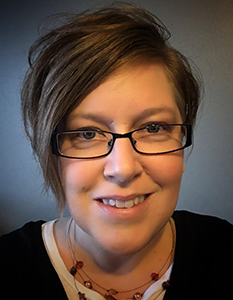 ‘We can only be human together’
‘We can only be human together’
By Jacki Wood
The year is done. I spread the past three hundred sixty-five days before me on the living room carpet… I fold the good days up and place them in my back pocket for safekeeping. Draw the match. Cremate the unnecessary… I pour myself a glass of warm water to cleanse myself for January. Here I go. Stronger and wiser into the new. – Rupi Kaur
We’re now a couple of weeks into the new year and I’ve taken a different approach to 2022 than in previous years. While I’ve been contemplating the last 365 days like Kaur – keeping the good and learning from and letting go of the bad – and looking ahead to the next, I’m doing it with a new outlook.
The late Desmond Tutu said: “We must be ready to learn from one another, not claiming that we alone possess all truth…”
The pandemic has been a difficult time for many reasons, but it’s also been a period of concentrated personal learning and growth for me. I’ve realized how little I know about a lot of things. My life choices, education and experiences have led me down a certain path that is quite different than a lot of other people’s paths. And I have developed a profound longing to see things from their perspectives.
Tutu also said: “My humanity is bound up in yours, for we can only be human together.”
For us to be human together, we have to know and understand one another. The best way I’ve found to do that is through listening to and learning from others who are different than I am – by reading about their histories, experiences and stories. Despite what some people say, this hasn’t made me hate my country or made me want to leave. Instead, it’s given me an understanding of why people make the choices they make and has helped me to better love my neighbors.
Here are a few books I’ve read recently that I recommend to help us better understand one another: “I’m Not Dying with You Tonight” by Kimberly Jones and Gilly Segal; “Uncomfortable Conversations with a Black Man” by Emmanuel Acho; “The Distance Between Us” by Reyna Grande; “Notable Native People: 50 Indigenous Leaders, Dreamers, and Changemakers” by Adrienne Keene; “White Tears/Brown Scars” by Ruby Hamad; “Locking Up Our Own” by James Forman, Jr.
What will I be reading in 2022? These have been suggested on recommended reading lists that I’ve added to my own: “Olga Dies Dreaming” by Xochitl Gonzalez; “We Are Not Free” by Traci Chee; “Fiona and Jane” by Jean Chen Ho; “Four Hundred Souls” edited by Ibram X. Kendi and Keisha N. Blain; “The Naked Don’t Fear the Water” by Matthieu Aikins; “Feelings: A Story in Seasons” by Manjit Thapp; “Of Women and Salt” by Gabriela Garcia; “The Removed” by Brandon Hobson; “I Must Betray You” by Ruta Sepetys; “I Am Not Your Perfect Mexican Daughter” by Erika L. Sánchez; “Darius the Great Is Not Okay” by Adib Khorram; “Better, Not Bitter” by Yusef Salaam.
If you’re looking for children’s books, I’ve recently purchased these for my nieces and nephews: “Rabbit’s Snow Dance” by James and Joseph Bruchac; “Meet Yasmin!” by Saadia Faruqi; “Each Tiny Spark” by Pablo Cartaya; “Any Day with You” by Mae Respicio; “The Proudest Blue” by Ibtihaj Muhammad; “Eyes That Kiss in the Corners” by Joanna Ho; “We Are Water Protectors” by Carole Lindstrom.
What are you reading this year? I’d love to hear.
Maybe we can learn from one another. And, in turn, be human together.




Facebook Comments